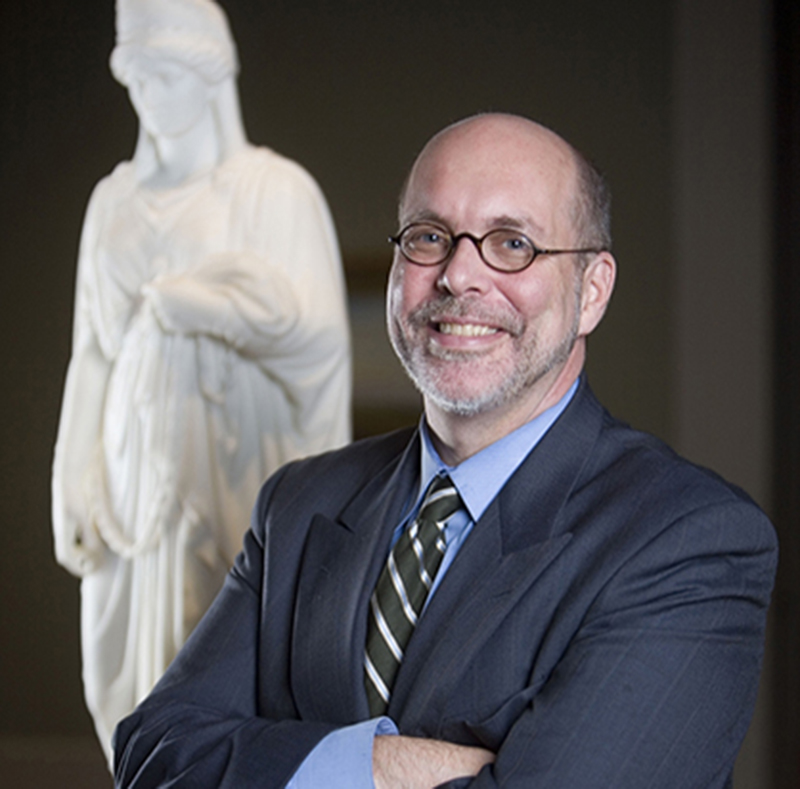A Conversation with Andrew J. Walker ’87
By Bowdoin College Museum of Art
This past fall, Student Curatorial Assistant Brooke Wrubel ’21 chatted with Andrew Walker ’87, Director, Amon Carter Museum of American Art in Fort Worth, Texas, following his visit to Bowdoin for the “Art Purposes Alumni Panel Discussion” in October.
Brooke Wrubel: What is the attraction to working in museums for you?
Andrew Walker: Originally it was a pursuit of public history. I learned the value of that at Bowdoin, but I think there was a lot of encouragement to branch out, to be courageous enough to articulate your own ideas. So that was my interest, which was to take that professional expertise about how to interrogate history and bring it to a public. I learned at Bowdoin that art museums were an avenue where you could make an impact. Museums provide people with the opportunity to participate in the creation of their history, in what makes that historical moment meaningful to them. I think that that expands beyond the scholarly approach to history and becomes a much more dynamic back and forth between the audiences that we serve. That has sustained me over time.
BW: Tell me about your position at the Amon Carter Museum of American Art and what steps you took to get there?
AW: I am the executive director, so I am responsible for the vision and the direction [of the museum], especially in terms of the ambitions that the institution has. That requires what I call a servant position in relationship to the curatorial side of things all the way down to registration—understanding that with a clear direction that may come from me, they are the people responsible for carrying that out.
At a certain point in my career, I came to a crossroad where I was not curating at all. I was learning the skills of management, which is not something they teach you in graduate school. If your ambition is in that direction, I encourage you take the opportunity when you’re a graduate student to explore that side. I would absolutely recommend taking a management course; it’s a very different way of thinking.
BW: What were some of your favorite courses you took at Bowdoin? If there were any that stand out to you.
AW: There were three. My freshman seminar on Michelangelo was taught by Clif Olds. There was a moment that I tested the waters with my final paper, and he responded to it with a really strong, supportive evaluation. Bowdoin, in my experience, made me feel like anything was possible. I took many Renaissance courses with Susan Wegner which were always very powerful. We engaged with the subject matter by exploring the various meanings that really encouraged a deeper sense of learning for me. Then, I had Brian Lukacher who taught a seminar on American landscape painting and I did a project on Thomas Cole’s Voyage of Life series. That was where I really learned that there was a dramatic and important story that the American tradition could tell: that my own nation has, or at least at that time still was fighting for, its own significance and its own validity. This was something new and very exciting for me which ultimately led me on a path to become an Americanist.
Brooke Wrubel ’21, Student Curatorial Assistant, Bowdoin College Museum of Art